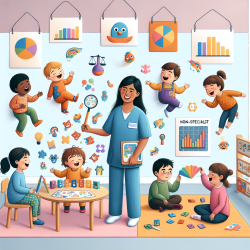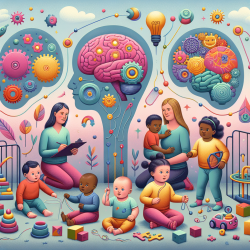Ever wondered what the secret ingredient might be to creating a thriving school culture? Hint: It's not more coffee in the teacher's lounge (though, admittedly, that never hurts). It's humor. Yes, you read that right. As mental health professionals working in schools, we often navigate a complex tapestry of needs, emotions, and regulations. Yet, in the midst of these challenges, infusing our days with a dose of laughter can not only lighten the load but also significantly impact our school's culture and the efficacy of our therapy sessions.
Let's dive into why laughter could very well be the best therapy in schools, especially when it comes to areas like speech therapy. After all, who said therapy sessions have to be all serious business?
- Breaks Down Barriers: Ever noticed how a good laugh can instantly dissolve tension in a room? Humor is a universal language that bridges gaps between individuals, making students more receptive to therapy. It's like the magic wand of rapport-building.
- Encourages Engagement: Incorporating fun and humor into sessions, especially in speech therapy, can transform a potentially intimidating experience into an enjoyable one. This not only boosts attendance but also participation, as students are more likely to engage in activities that make them smile.
- Stimulates Learning: It's no secret that we're all more likely to remember something if it made us laugh. Humor enhances retention and can make the learning process more effective, particularly in therapy settings where engagement is key to progress.
- Boosts Mental Health: Laughter is a natural stress-reliever. For students who might be facing various challenges, both in and out of school, a therapy session that includes laughter can be a bright spot in their day, contributing to a more positive school experience overall.
- Creates a Positive School Culture: When mental health professionals model the use of humor and joy in their interactions, it sets a tone for the entire school. A culture that values laughter is one that fosters resilience, collaboration, and well-being among students and staff alike.
So, how can we, as mental health professionals, sprinkle more humor into our workdays and therapy sessions? It might start with a funny ice-breaker at the beginning of a session, a light-hearted joke to ease into a challenging topic, or even incorporating games and activities that make learning fun. The key is to create an environment where laughter is welcomed and encouraged, fostering a sense of joy and ease that permeates throughout the school.
Remember, while our work is undoubtedly important and often serious, finding moments to laugh together can make all the difference in building a vibrant, supportive school culture. So, let's not underestimate the power of a good chuckle – it might just be the most therapeutic tool we have.










